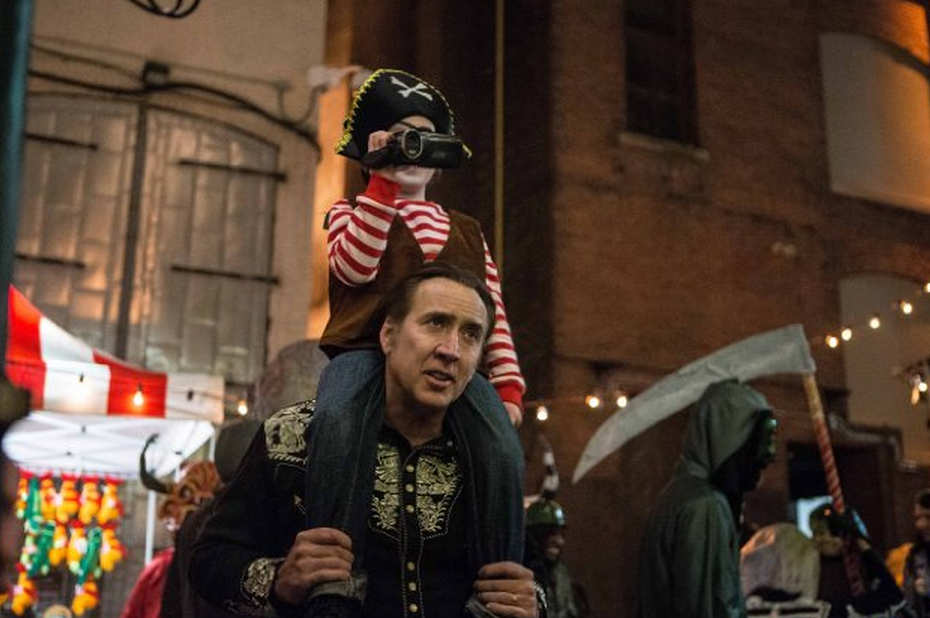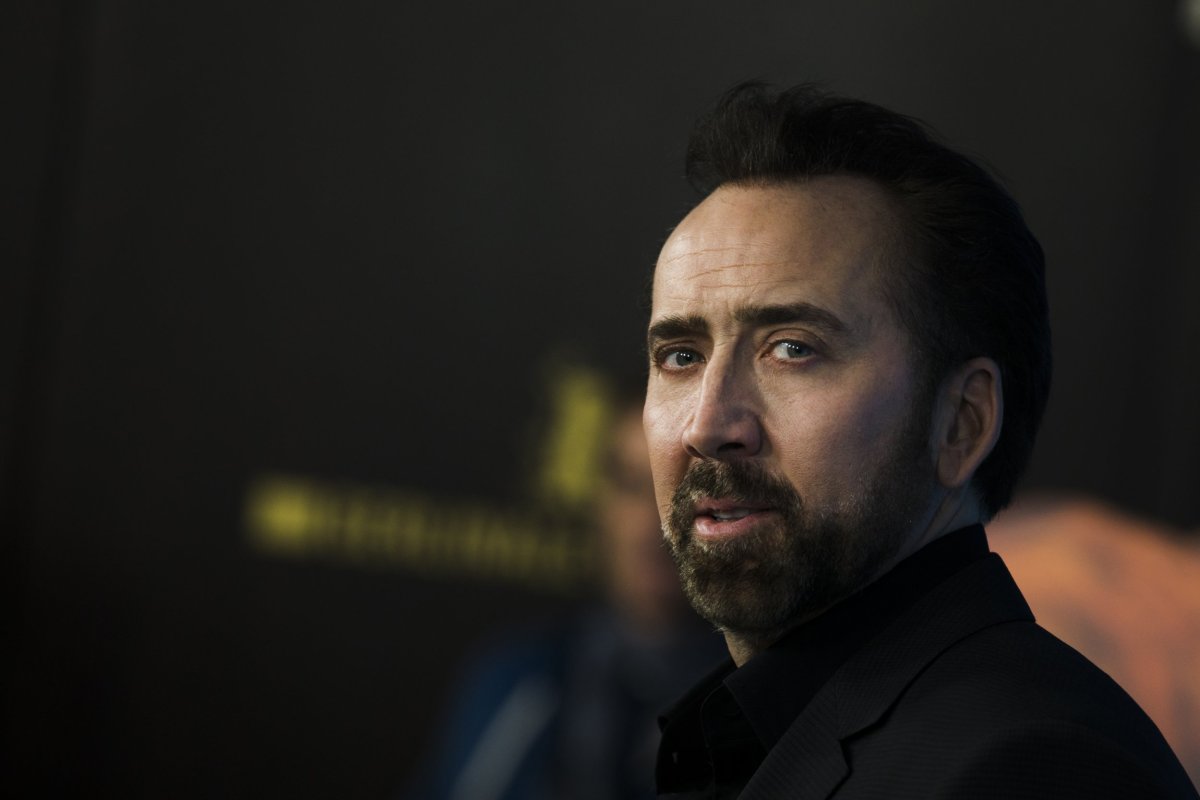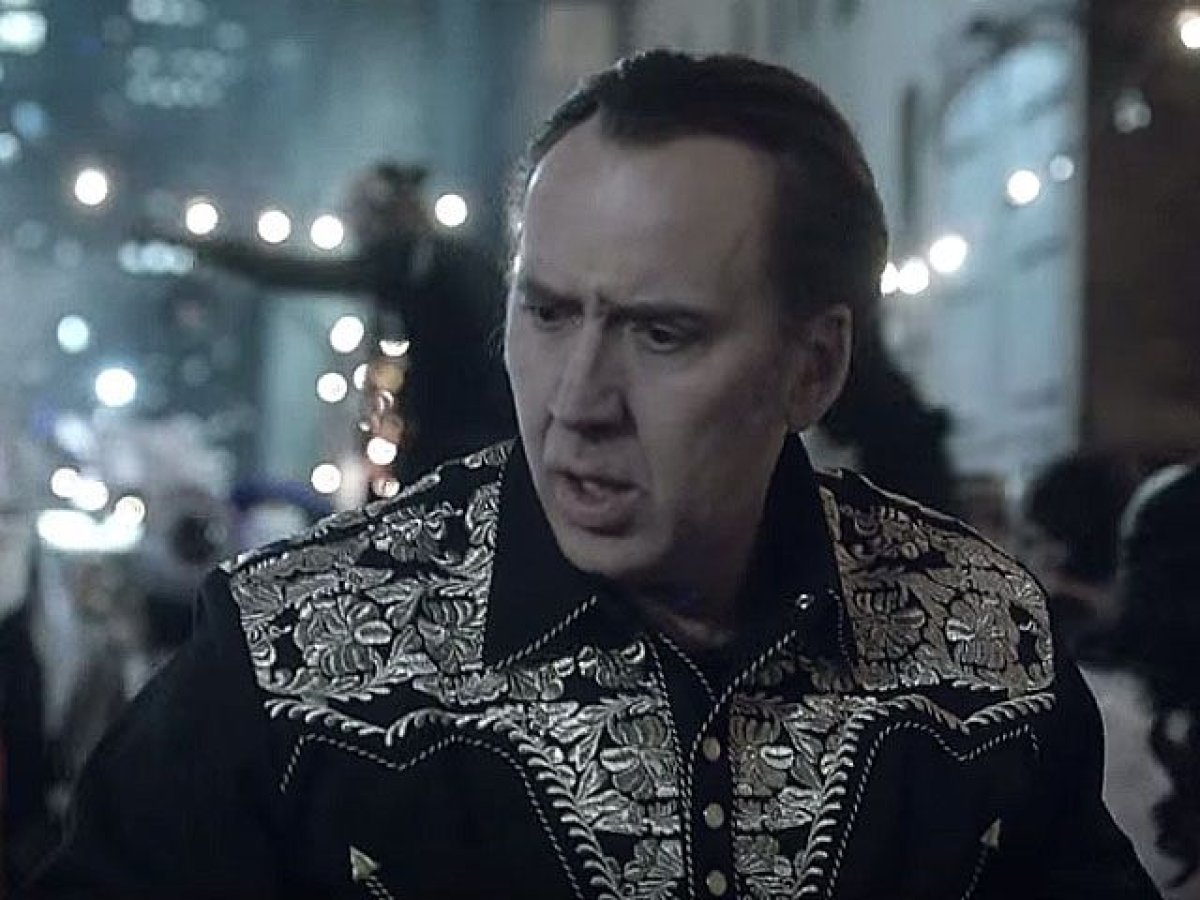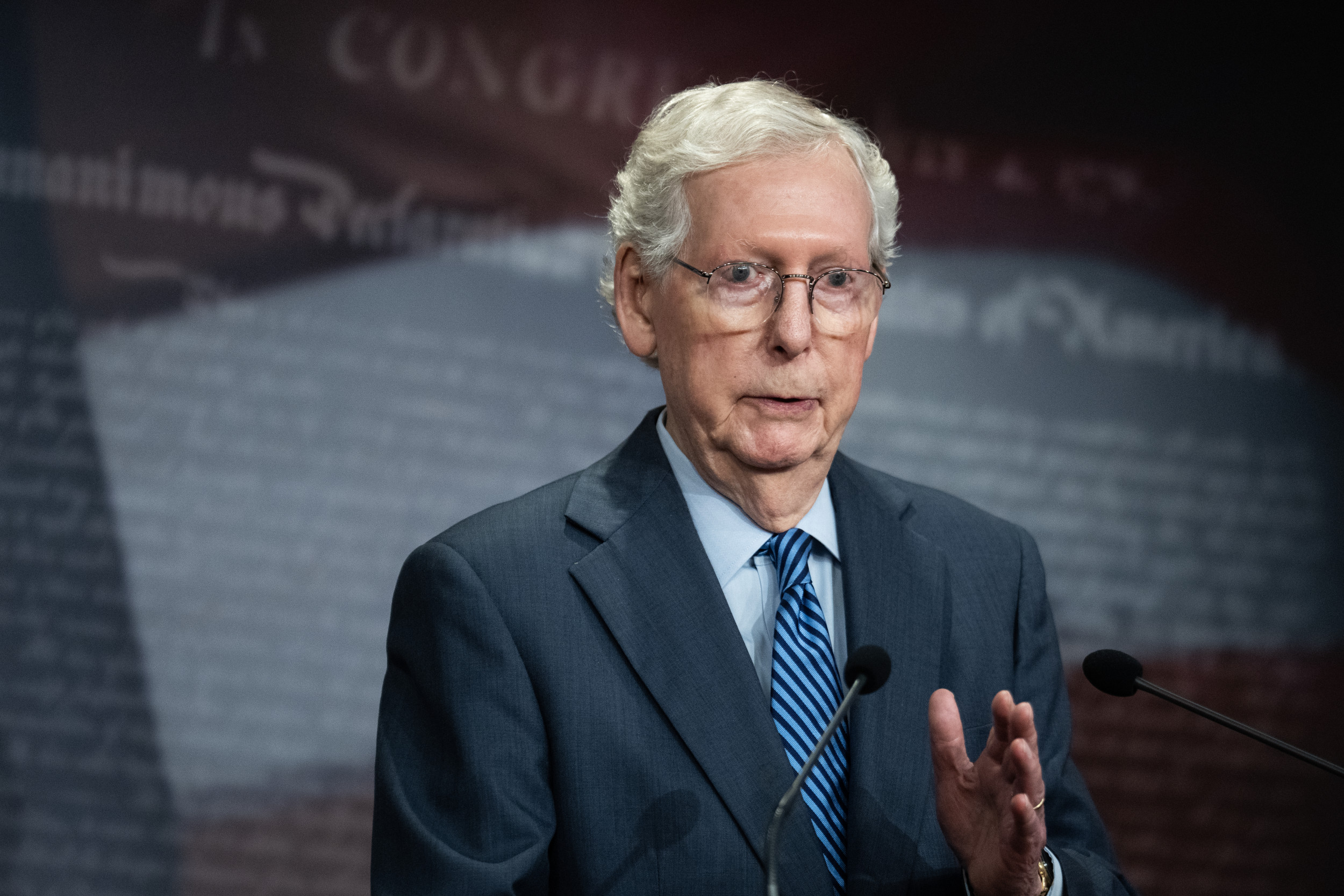
Nicolas Cage has been in some movies you like. Nicolas Cage has been in some movies you don't like. Nicolas Cage has been in a lot of movies. He doesn't regret any of them.
From Leaving Las Vegas and Face/Off to more recent flicks like Werner Herzog's Bad Lieutenant remake, Cage has been both vociferously praised for his intense and unmistakable screen presence and sometimes criticized for his choice (or volume) of roles. "I don't really have any regrets," the 51-year-old Academy Award winner tells Newsweek. "I think regret is a waste of time."
Cage's manic energy is the best thing about Pay the Ghost, a Halloween-set horror film that pits the actor with veteran German director Uli Edel. Cage plays an English professor whose son is snatched during a parade, setting off a desparate quest to the bottom of an ancient, supernatural conspiracy. There are ample jump scares and distinctly Cage-ian facial contortions, but no mad dashes to steal the Declaration of Independence.
Nicolas Cage spoke to Newsweek about Pay the Ghost, his love of Halloween and his refusal to watch his own movies.
What drew you to Pay the Ghost. What made you want to take on the role?
One, the emotional element of what I think every parent will consider a nightmare—of losing one's child in public to a kidnapping or an abduction—is something that I think many parents can relate to, that fear. To go from that very real emotional horror into the horror of having to enter another dimension, a supernatural dimension, to try to bring your child back, I thought that was an unusual progression that I'd not seen before in a movie. It provided the challenge of, "How can I make this feel real, dramatically?"
You often seem to play characters who are on some kind of obsessive quest. Do you seek out roles like that, or do they just find you?
I think they find me. But I also relate to them. I like the idea of the road trip on some level as a formula for a film structure. The idea of having to go from one destination to another and then hopefully back again. It lends itself to a structure that I can get in step with. The concept of adventure. Even if it's as mundane as a Halloween carnival, the idea that you're going on an adventure and then things are never going to be the same, and then try to find your way back again. I think it's a structure that I respond to.

The movie takes place on Halloween. Do you have any good Halloween stories from your own life?
No, just that I've always enjoyed Halloween. I think it's impossible for any actor to not have a bit of a song in his heart for Halloween—or her heart for Halloween—simply because it's the only holiday that really advocates dressing up in costumes and makeup. That's part of what actors do. It's part of the instrument of the craft of acting, to be able to transform oneself. So it's always a happy experience for me every time Halloween rolls around. It's also one of the only holidays where there's an exchange between total strangers and oneself and you have to have that trust. I love watching the young people get dressed up, and they go trick-or-treating. That's the first fun part of Halloween. The second fun part of Halloween is having the kids come to your house and ring the doorbell and trick-or-treat.
Do you give out candy on Halloween?
Yeah. We like to do both. My son will go trick-or-treating and then he'll get dressed for the other part of Halloween, which is the giving part. Giving the treats out to the young folks in the neighborhood. I still have a fondness for Halloween in my heart.
There are some aspects of the plot that are kind of reminiscent of previous roles. I've seen some comparisons to The Wicker Man. Do you worry about repeating yourself?
No, I have to disagree with you on that one. That's part of a good discussion. But I don't see any comparison to The Wicker Man. Except for perhaps the pagan element of it. But The Wicker Man is more about people who were, in a very absurd style, but nonetheless torturing somebody based on their ritual practices, whereas this is meant to be some force from another realm and not necessarily people.
In the past two years alone, you've been in something like eight or nine movies. Do you find it hard to balance all the different projects?
No, because I think they're all very different from one another. The Runner, to me, was a political drama. And this is a supernatural adventure of sorts. As long as I can keep changing it up. Army of One, which is yet to come out, is a completely different character. As long as I can reinvent myself or some point of expression and keep it eclectic, I can stay interested and hopefully keep the audiences interested.
Are there any roles that you've down in your career that you regret turning down?
I don't really have any regrets. I think regret is a waste of time. I try to always move forward as opposed to dwelling on the past or the movies that might have happened. There certainly were movies that I probably would have benefited from if circumstances in my life allowed me to make them.
Any particular ones that come to mind?
Lord of the Rings. That trilogy. Aragorn. Or The Matrix. But the thing is about those movies, I can watch them. I can enjoy them as an audience member. I don't really watch my own movies. And so I genuinely do have the joy of watching these—especially with Lord of the Rings.
Were you offered a role in that?
Yeah.... There were different things going on in my life at the time that precluded me from being able to travel and be away from home for three years. And I do mean it. I get to enjoy the movies as an audience member, because I don't watch my own movies.

We talked about The Wicker Man briefly. That movie kind of helped make you into an Internet meme. Supercuts with your acting are really popular. What do you make of that?
It's a phenomenon for sure. I'm not entirely sure the movie deserved that much attention, good or bad. It's an ironic experience for people. I don't think people are aware—or some of the people anyway—are aware the movie was designed to be a bit of a black comedy. There was some irony involved in the portrayals. There seems to be a need by many of the folks on the Internet to think that [director] Neil LaBute and myself were completely clueless as to that fact, which was not the case.
Do you think it's benefited your career that people love to talk about you online?
I don't really know how to assess it. It's sort of completely out of my reference point for anything that, at least before the Internet, has happened in my career. I don't even know how to process it. So I try not to think too much about it.
What was it like to work with Uli Edel on Pay the Ghost?
He was always rewriting the script. I think he cared a great deal about perfecting and trying to hit the notes to get it to some level of suspense and to try to prevent it from becoming appropriated or derivative of anything else. I had not seen any of these other movies that he kept regarding as trying to avoid. But he was very clear about not wanting it to be unoriginal. He would go to great lengths to re-tweak the script.
Are there any directors you haven't worked with that you'd really like to work with at some point?
I would love to work with Paul Thomas Anderson. I think that he's one of the greats. And he's certainly a true artist. Quentin Tarantino and I, the two of us could really do something quite special. But I remain positive and hopeful that it will eventually happen.
Uncommon Knowledge
Newsweek is committed to challenging conventional wisdom and finding connections in the search for common ground.
Newsweek is committed to challenging conventional wisdom and finding connections in the search for common ground.
About the writer
Zach Schonfeld is a senior writer for Newsweek, where he covers culture for the print magazine. Previously, he was an ... Read more
To read how Newsweek uses AI as a newsroom tool, Click here.








